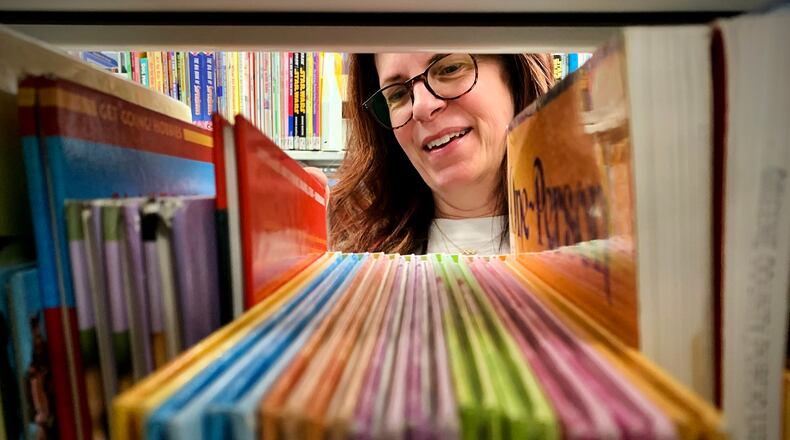Reading is foundational for health outcomes, not only for children’s cognitive brain development, but also to help them make informed decisions about their health later in life, officials said.
“Literacy is health,” Michelle Beebe, Manager of Childbirth Education and Perinatal Outreach with Kettering Health.
“We see every day in healthcare, clients that have difficulty with reading don’t understand what’s going on with their own health. It’s a huge challenge. So starting a lifetime of literacy empowers somebody to have self efficacy and to be able to take care of themselves.”
Reading affects a host of everyday medical processes, everything from understanding discharge paperwork and drug labels, to selecting healthy foods and understanding immunizations, as well as understanding legislation that affects healthcare. Medical literacy also helps patients to have intelligent conversations with healthcare workers about their own bodies.
On the internet, medical literacy also includes being able to determine correct health information from the large amount of medical misinformation available. “Doing your own research,” sometimes makes things worse, Beebe said.
“At the hospital level, we are the catchers. We’re putting band aids on problems,” Beebe said. “Imagination Library allows us to do primary prevention or primary promotion of health, because that’s where everybody’s still happy. We are sharing knowledge and skills for a lifetime.”
Additionally, starting kids in reading programs at an early age is foundational for a child’s cognitive development. Dolly Parton’s Imagination Library runs in all 88 Ohio counties, with 39.8% of all age-eligible children in the state enrolled, and hospitals have supported Imagination Library both locally and across the state. In 2013, Kettering Health paid $60,000 to start the Imagination Library program in Greene County.
“Kids who read succeed. It’s that simple,” said Greene County Public Library Executive Director Karl Colón. “The impact the program has had since 2013 is staggering.”
An ongoing study from Cincinnati Children’s Hospital showed a 15.4% rise in Kindergarten Readiness Assessment among participating children in just three years, from 42.9% in 2017 to 58.3% in 2019. Additionally, Cincinnati Childrens’ found that over the course of three years, 81.7% more kids brought books to their parents for them to read. Researchers also saw similar increases in time spent reading, and time spent reading together with mom or dad, which builds social and cognitive connection.
Greene County has the fourth highest enrollment in the state at 57%, behind Shelby, Logan and Miami Counties.
“As of April this year, there are more than 5,000 Greene County children receiving books every month,” Colón said. “When you add the more than 9,000 children who’ve graduated over the years, the Imagination Library has changed the lives of over 14,000 of our county’s children and their families.”
Additionally, a child that enters kindergarten ready for school has an 82% chance they will master basic skills by age 11, compared to 45% chance for children who are not ready. According to data from the Dollywood Foundation, investment in early literacy programs translate to a 7-10% annual return through improved education, health, social and economic outcomes, because it increases productivity and reduced need for social spending.
According to the CDC, unemployment is consistently associated with high rates of depression among adults.
“Preparing somebody for kindergarten sounds like a little deal, but it’s actually a huge deal. Because it translates to employed Ohioans,” Beebe said. “We’ve seen people that are unemployed, they’re having all kinds of mental health struggles, because they’re unemployed.”
About the Author

